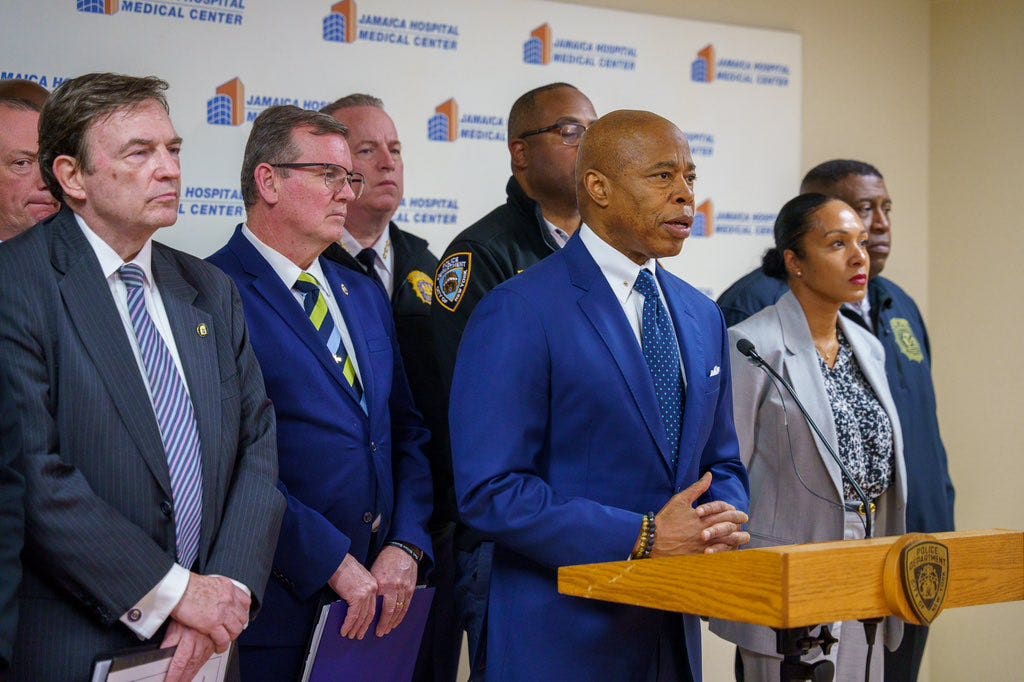Summary:
A new study found that NYC businesses under sidewalk sheds experience up to a 10% decrease in weekly transactions.
Mayor Eric Adams launched the "Get Sheds Down" program to address the issue.
The program aims to speed up repairs, reduce unnecessary sheds, and improve shed design.
The study, conducted with Mastercard, showed significant drops in cardholder spending at businesses with sheds.
Despite the challenge of 9,110 active sheds, the program has already removed 259 sheds that had been in place for over five years.
NYC Sidewalk Sheds: A Big Problem for Businesses
New York City's infamous sidewalk sheds and scaffolding are not just eyesores, they're also hurting local businesses. A new study has revealed that businesses located under these structures see a significant decrease in revenue, with some reporting up to a 10% drop in weekly transactions in the six months after a shed goes up.
This data has prompted Mayor Eric Adams to launch the "Get Sheds Down" program, a nine-point initiative designed to expedite building repairs and reduce the number of unnecessary sheds in the city. The program aims to:
- Speed up repairs: Encourage building owners to address issues quickly so sheds don't linger for years.
- Reduce unnecessary sheds: Identify and remove sheds that are no longer needed for safety.
- Improve shed design: Make necessary sheds and scaffolding less disruptive and unsightly.
The study, conducted in partnership with Mastercard, found that cardholders spent significantly less at businesses with sidewalk sheds, averaging between $3,900 and $9,500 less per month.
The city is facing a daunting challenge with 9,110 active sheds currently in place, averaging 485 days in existence. However, the program has already seen some success, with 259 scaffolds and sheds that had been up for five years or longer removed in recent weeks.
Mayor Adams emphasized the detrimental impact of long-lasting sheds, stating, "Those sheds may have gone up to keep people safe, but they’re still up because it’s cheaper for building owners to leave them up than to fix their buildings. That’s bad for public safety, bad for our city, and, as this study shows us, bad for business, too."









Comments
Join Our Community
Create an account to share your thoughts, engage with others, and be part of our growing community.